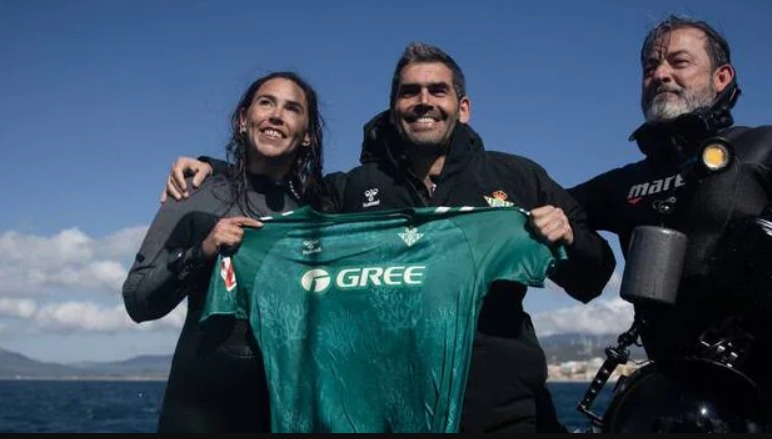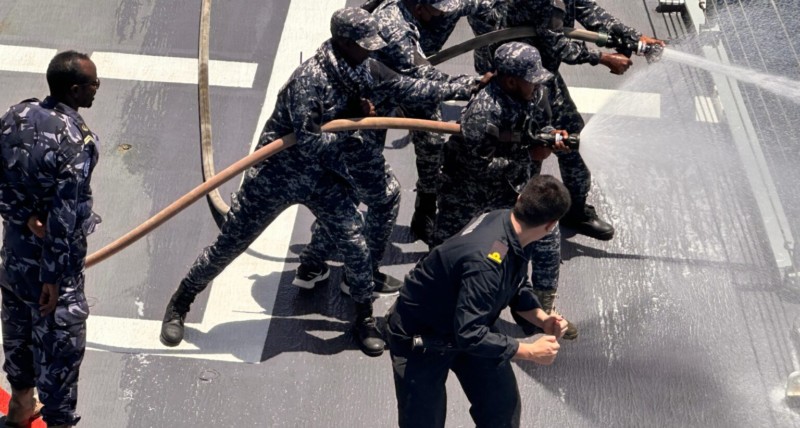
Real Betis, a Spanish first-division club, will play a match in mid-February wearing a jersey partially made from algae. The goal: to raise awareness about the spread of an invasive Asian seaweed that is taking over the Mediterranean coast.
The club, a major rival of Sevilla FC, launched this new jersey in early February to draw attention to the environmental crisis affecting the Andalusian coast. The jersey is made from recycled plastic collected from the sea and a fabric created from brown algae. Named Rugulopteryx okamurae, this invasive species has rapidly spread throughout the Mediterranean, impacting biodiversity, fishing, and tourism, while its removal remains costly.
Betis unveiled the jersey in Tarifa, a town particularly affected by the issue, and will wear it on February 16 in a La Liga match against Real Sociedad.
“Invasive algae on our coasts are destroying our ecosystem. To combat this, the first jersey made with fibers created from these algae has been born,” Betis wrote in a message shared on social media. The club, well known in France for hosting midfielder Nabil Fekir from 2019 to 2024, also has a strong reputation for its environmental commitment.
In 2019, Real Betis became the first football club to join the United Nations initiative Climate Neutral Now. In 2021, a year before the controversy over PSG’s use of private jets, the Spanish club partnered with Renfe, the national railway operator, as its official transport provider.
A Spreading Invasive Algae
Marine biologist Candela Sanchez Atienzar explained to AFP that the algae, originally from the North Pacific, likely arrived in Spanish waters in 2015 before spreading “out of control.”
“We learned that this invasive Asian algae was causing numerous problems across various sectors in the region, so we wanted to use this opportunity to draw attention to the importance of protecting our oceans and seas,” summarized Rafael Muela Pastor, director of the Betis Foundation, in an interview with AFP.
In France, there are several examples of using algae in textiles. In 2023, Alice Thieffry-Cesari, a designer from Toulouse, created clothing made of 80% organic cotton and 20% seaweed fibers. In 2024, Violaine Buet opened a workshop in Morbihan dedicated to weaving algae-based fabrics.
Her creations have been exhibited in New York, Tel Aviv, and the Netherlands, as she told Ouest-France at her workshop’s inauguration. Meanwhile, in 2015, the Nantes-based company Naoned made headlines by unveiling eyeglass frames made from seaweed.



